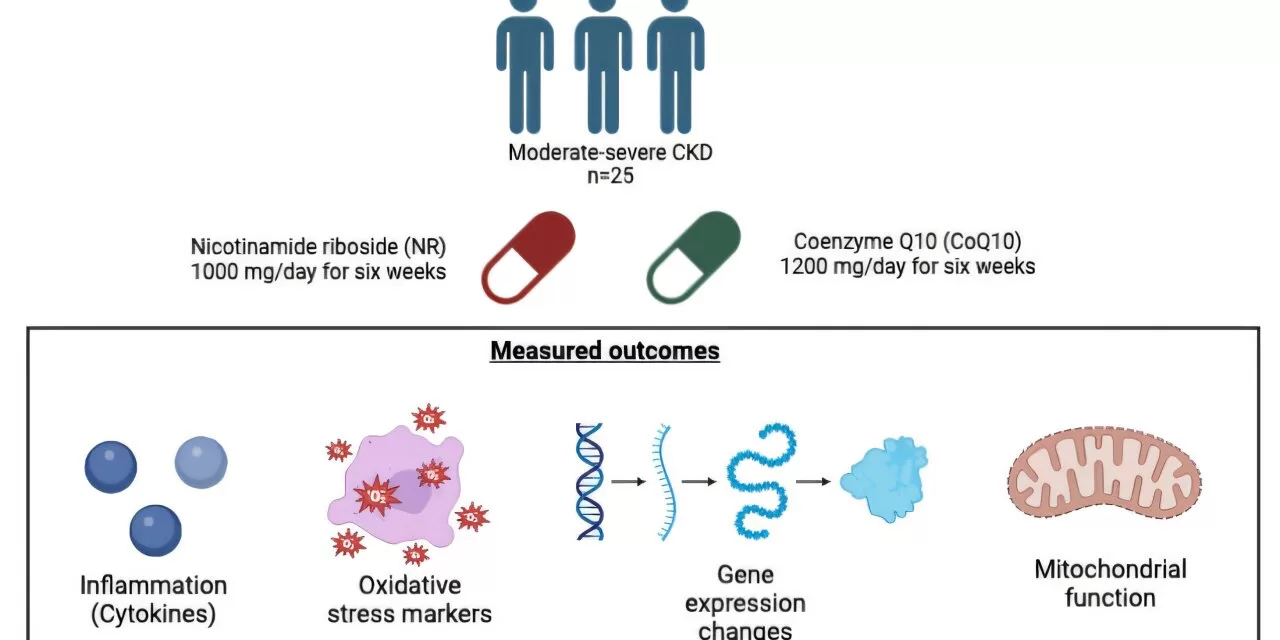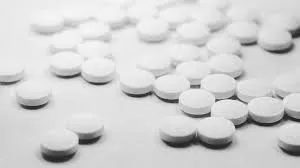UC Davis Health Researchers Identify Potential Benefits of NR and CoQ10
Countless advertisements and companies promote products that claim to improve metabolic health, but do they actually work? A new study from UC Davis Health suggests that two chemical compounds—nicotinamide riboside (NR) and coenzyme Q10 (CoQ10)—may offer metabolic and anti-inflammatory benefits.
Breakthrough Research Published in Leading Medical Journal
The study, published in the Clinical Journal of the American Society of Nephrology, examined how NR and CoQ10 affect inflammation, oxidative stress markers, gene expression changes, and mitochondrial function in patients with chronic kidney disease (CKD).
“Many rodent studies suggest the compounds NR and CoQ10 improve muscle function or increase health span during aging,” said Baback Roshanravan, professor of medicine and the Paul F. Gulyassy endowed professor in nephrology. “This study is the first well-designed human trial that tests some of the potential beneficial metabolic changes in CKD patients.”
CKD patients are often understudied in clinical trials due to the complexities of kidney function in drug metabolism and elimination. However, researchers at UC Davis Health sought to fill this gap with a randomized, placebo-controlled trial.
Study Design and Key Findings
The trial involved 25 patients who received NR (1000 mg/day), CoQ10 (1200 mg/day), and placebo separately for six-week treatment periods. The study followed a double-blind design, meaning neither researchers nor participants knew which treatment was being administered at any given time.
Key findings from the study include:
- Both NR and CoQ10 reduced oxidative stress markers.
- CoQ10 decreased markers of systemic inflammation (IL-13 and CRP).
- CoQ10 improved lipid metabolism and showed changes in genes related to stress and immune response.
- NR enhanced immune cell mitochondrial function.
- NR improved genes related to carbohydrate and lipid metabolism and reduced harmful lipids, including triglycerides.
“We were encouraged to see a modest effect of decreasing inflammation, some antioxidative properties, and decent improvements in metabolism within a relatively short treatment period,” said Armin Ahmadi, postdoctoral scholar in nephrology and lead author of the study.
Implications for Chronic Illness and Future Research
Ahmadi highlighted the significance of these findings, explaining that chronic inflammation can lead to a wide range of diseases, including diabetes and cardiovascular conditions. The presence of antioxidants in NR and CoQ10 may help the body combat free radicals, which have been linked to chronic illnesses such as cancer.
“These results lead us to believe that these compounds could be beneficial beyond just CKD patients,” Ahmadi noted.
Researchers are now exploring the potential synergy between these compounds and exercise. A new trial will investigate the effects of CoQ10 on physical performance, with the goal of understanding how it may enhance exercise tolerance and efficacy.
“Improving physical performance will always require more than just pharmacologic therapeutic options,” Roshanravan stated. “However, by better understanding how these compounds affect the body, we may find ways to boost the benefits of exercise.”
Disclaimer:
This article is based on a study published in a peer-reviewed journal and is for informational purposes only. The findings are preliminary, and further research is needed to confirm the effects of nicotinamide riboside and coenzyme Q10 on metabolism and inflammation. Individuals should consult with a healthcare provider before making any changes to their health regimen.












